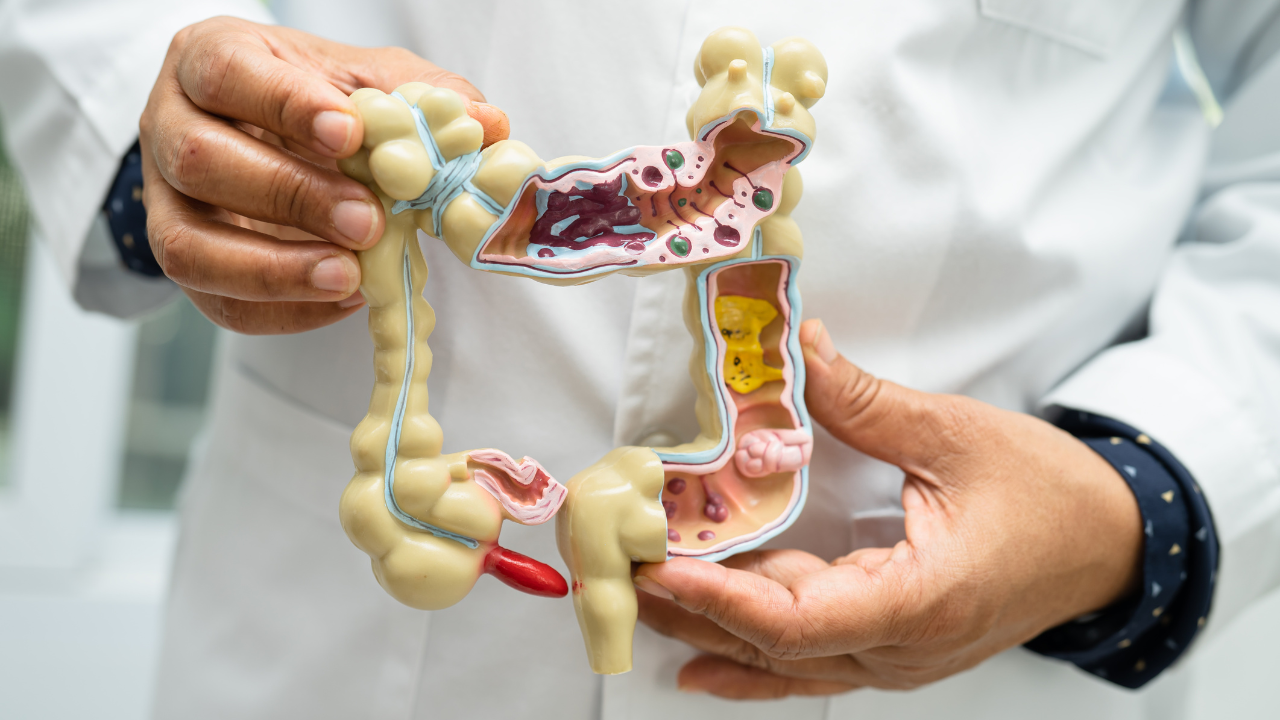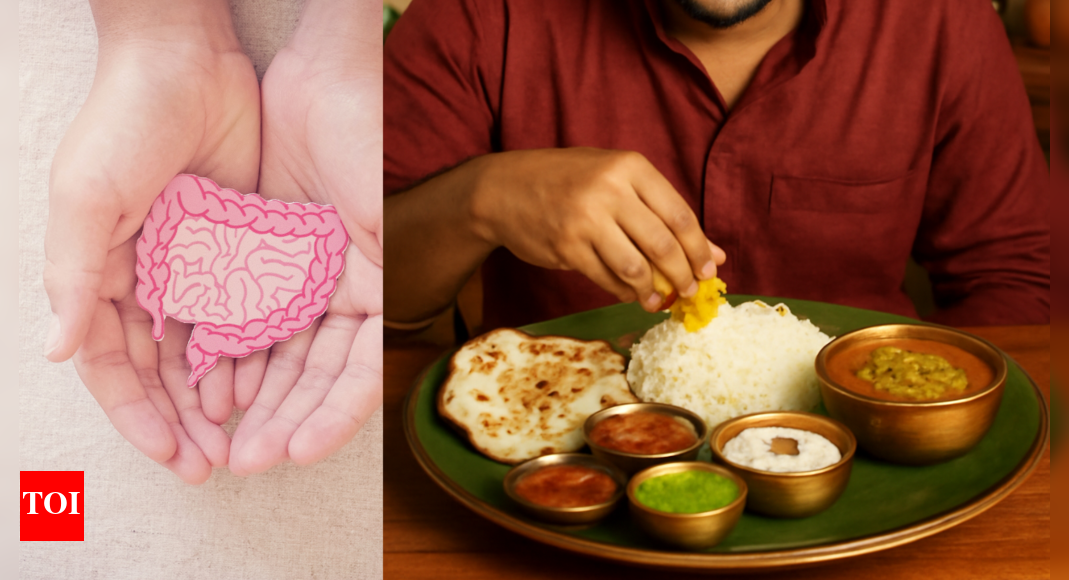In Indian culture, eating with hands is a ritual of union between body, mind, food, and heritage. According to Ayurveda, fingers are not tools but portals of perception. Contemporary science is finally catching up with what these cultures have understood for so long. Together, they make a compelling argument for viewing hand eating as not only a cultural tradition but as an activity with tangible advantages for digestion, fullness, immune function, and emotional well-being.Dr. Karan Ranjan, in his latest Instagram video shared the benefits of eating with hands and how helpful it is for our digestive system and gut health.
Sensory cues and the cephalic phase of digestion
According to tradition, touching food with the fingers sends crucial messages to the body prior to taking the first bite. Scientifically, it is the cephalic phase of digestion—the initial phase where the senses (touch, smell, vision, taste) stimulate the secretion of saliva, enzymes, gastric juices even before the food is chewed. As sensory nerves in the tips of fingers sense the food, the brain is alerted to prepare the mouth and gut for the digestive process. This aids in food breakdown more effectively. Experts think this leads to reduced bloating, improved nutrient uptake, and kinder digestion.
Slow eating, great satiety

Metal utensils take away a lot of the sensory feedback (texture, temperature) and can lead to faster bites. A study in nutrition reveals that eating slowly makes people feel full faster, decreases overeating risk, and helps with healthier blood sugar management. In contemporary research, rapid eating (usually being linked to the use of utensils) is associated with greater incidence of obesity and type 2 diabetes. Therefore, the custom fits science on how to eat mindfully and control portion sizes.
Texture, temperature, and digestive wellbeing
Fingertips are more sensitive to temperature than metal or plastic utensils. Awareness of food being too hot avoids burns and discomfort. Texture sensation (soft, firm, moist, dry) aids in determining how much to chew, affecting enzyme function and mechanical breakdown. Ayurvedic teaching requires chewing numerous times for each bite (“food should be like liquid”) to enhance agni, digestive fire. In contemporary nutrition science, chewing food well relates to better digestion, less digestive distress, and more effective absorption of nutrients.
Immune exposure

Ayurveda recognizes natural exposure to clean soil and microbes through environmental and touch practices. Current research is increasingly interested in early and moderate exposure to external microbes as a source of healthy gut microbiome and immune system strengthening. Germs are given bad publicity, but not all microbes are bad. Washed and clean hands harbor non-pathogenic organisms that can train the immune system. Using hands to eat can contribute to microbial richness.
Mindfulness and emotional wellbeing
In Ayurvedic tradition, food is not sustenance but holy. Food eaten by hand is an act of love, respect, being present. Contemporary psychology and behavioral nutrition affirm that mindful eating-noticing texture, taste, smell, touch-lessens stress, enhances satisfaction, and decreases emotional eating.Research indicates individuals who consume food mindfully are less prone to overeating, more likely to be aware of fullness, and tend to experience more enjoyment from meals. Emotional complexity associated with tradition (traditional meals, lovingly prepared food, touch) sustains psychological well-being.

Science is finally revealing how those habits align with digestive physiology, microbiome health, metabolic well-being, and emotional well-being. Eating becomes less about consumption-it becomes a ritual, a moment, a bridge between culture and health. Eating with hands (with clean hands) is something that can be easy yet effective. It respects tradition, it aids digestion, and it cares for the mind and gut in tandem. In an age of hurried food and inattentive meals, this could be one of the kindest paths back to well-being. As Dr. Ranjan said, our hands are nature’s thermometer and they are basically digestion joysticks.
